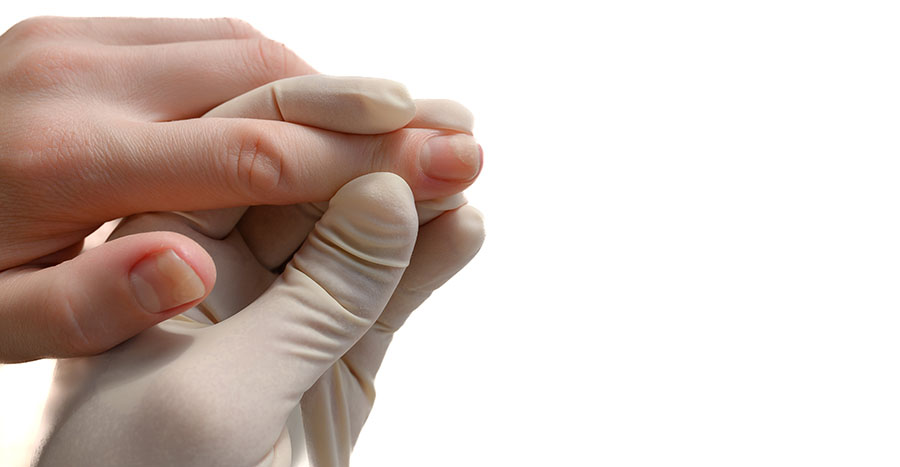
Nail Disorders
The nails typically present with a smooth and consistent appearance, but over time, they can be susceptible to damage and become brittle. As a result, we can start to develop abnormalities in colour, shape and texture. Infections and hereditary conditions can also impact the nails and leave them with a permanent disorder.
What are nail abnormalities?
It's normal for nails to go through changes and develop spots or lines, but it could also indicate a more serious underlying condition. Nail abnormalities can appear in many different ways, including:
- Streaks, spots or discolouration
- Thinning or thickening nails
- Separation from the skin
- Pitted nails
- Swelling, redness or bleeding
Types of nail disorders
In some cases, nail abnormalities indicate underlying issues or diseases that only a professional dermatologist can diagnose. If you notice any abnormalities, it could be a sign that you have one of the following:
- Acral lentiginous melanoma: When melanoma (skin cancer) occurs underneath the nail and leaves a dark streak.
- Yellow nail syndrome: Yellow nails that become thick and stop growing could indicate a severe illness or infection.
- Paronychia: An infection can cause the nail to either turn a greenish-black or cause redness and swelling.
- Tinea Unguium: When a fungal infection causes the nails to crumble and become ragged.
- Pitting: People with psoriasis, eczema, or alopecia tend to experience pitting of the nails when it appears as though the nail has been pricked several times.
- Onycholysis: The nail begins to lift due to injury or infection, leaving white marks on the nail.
- Onychogryphosis: Also known as ram's horn nails, these are thick and hardened nails that need to be treated carefully by a dermatologist.
- Koilonychia: Spoon-shaped nails indicate a nutritional deficiency or concern, such as low iron.
- Clubbing: Curved nails and enlarged nail beds are often signs of liver, heart or lung disease.
Treatment for nail disorders
Dr Maphosa will work with you to understand your specific condition, the underlying cause, and how to best treat it. He may provide topical treatments or a referral to a specialist if the cause is disease- or nutrition-related.

